The Elected King of France
Table of Contents
Turns out that hereditary kings are not the best way to get someone competent on the throne, so we decided to go back to the ancient tradition of electing them. And if one of them turns out to not live up to his promises, well... he can always be deselected by Madame la guillotine!
The history
Ancient Germanic tribes used to have an assembly of warriors select their kings and to have them acclaimed by raising them on a shield. If a king became unable to rule—for example by having their hair cut by a rival, making them lose all their power, or by being blinded by said rival and so not being able to be a warrior anymore—then the tribes could decide to depose the king and elect a new one.
This tradition continued to be applied at the beginning of the Frankish and French kingdoms. However, it stopped when the kings started to have their eldest son crowned while they were still alive so as to establish them as co-rulers of the kingdom. Through this practice, they managed to institute the rule of primogeniture that sees the eldest son of the French monarch always inherit the crown. Nevertheless, in times of uncertain inheritance of the crown, it was still an assembly of nobles that chose the next king and established the new dynasty. This indeed occurred with Hugues Capet in 987 and Philippe VI in 1328.
After the revolution of 1789 and King Louix XVI's betrayal, the French people decided to renew with this ancient tradition in the hope that this would allow them to gain more competent monarchs. And if not, there is always the possibility of electing a new one…
See? Electing kings is perfectly reasonable and does not come out of nowhere! We are merely reviving an old and fine tradition from the infancy of our kingdom. Of course, we are also bringing back all the instability that came with it, but that is not exactly an undesired side effect, if you get my meaning...
The election
The king is chosen by the Assembly of Lords and Ladies, which are all the individuals owning a title in France. Those positions are hereditary, but kings can also create new titles to add to their number and change the majority of the chamber. Once the politicking is finished and a candidate is approved, he is formally acclaimed by the assembly shouting "Vive le roi!". From this moment on, the king is considered to start his reign.
However, in the new constitutional monarchy system, it is required that the decision is approved by the National Assembly, which is made of deputies elected by the electors. That assembly does not always immediately approve of the decision made by the lords and ladies, and so they need to be convinced through a lengthy debate process.
During this, the king and the lords and ladies are allowed to appear in front of the assembly to present their cases. The process generally lasts several days. When in the past this persuasion has become too lengthy, kings have tended to bring forwards more "striking" arguments… So far, the lords and ladies have only elected monarchs who had the support of armed forces and so the assembly has not managed to go against their decision.
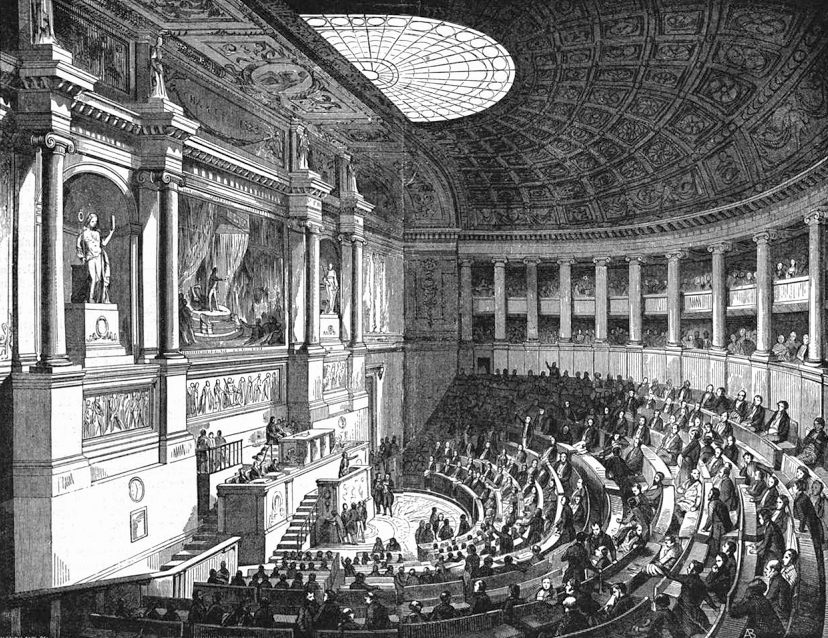
King Lucien with the French parliament by Wikimedia Commons
Of course, that means that it's the army that decides in the end. But that's not as if a king could rule without its support anyway, given the constant rebellions inside the country and the foreign powers waging war against us in the outside... All those imbecile politicians and their unpractical ideals only need to wake up to the reality of the situation, and we would stop losing so much time with trifles.
The Sacre
Once the new king is approved, everyone goes to Reims where the formal coronation happens. This process is extremely lengthy—at least 6 hours—and it is called sacre. This is what is important for the French monarchy rather than putting the crown itself on the king's head. It takes place in Reims as a reminder of the baptism of Clovis there by Saint Rémi in 496. During the sacre, the Archbishop of Reims gives the unction to the king as has been done during the coronation of all French kings since the time of King Pépin in 752. In 869, the Holy Ampulla containing the miraculous oil brought by a dove and used in Clovis' baptism was rediscovered in Saint Rémi's tomb. This oil has been used in the sacre of all French kings since then to give them the divine right to rule in France. It is what grants the kings the thaumaturgic touch that allows them to heal scrofula, a disease also called "king's evils" for this reason. To symbolise the support of the Church, the 6 French Bishops participate in the ceremony of the sacre:
- The Archbishop of Reims anoint and crown the king.
- The Bishop of Laon carries the holy ampulla.
- The Bishop of Langres carries the sceptre which is ended by a golden fleur-de-lys and symbol of the royal authority.
- The Bishop of Beauvais carries and showed the cope, a blue royal mantle covered with golden fleurs-de-lys.
- The Bishop of Chalons carries the royal ring that symbolises the union between the king and his people.
- The Bishop of Noyon carried the belt.
- The Abbot of the Abbey of Saint-Remi who is the guardian of the holy ampulla and brings it to the Archbishop of Reims.
- The Abbot of the Abbey of Saint-Denis who guards the other regalia, such as the Chalice of Saint Rémi, the main de justice which is a sceptre ending with a hand that has the first three fingers opened to symbolise judicial authority.
- The Duke of Burgundy carries the royal crown (a closed golden crown, consisting of a gold circle surmounted by four fleur-de-lys, placed on a velvet cap decorated with pearls), girds the king's sword, and gives him the order of chivalry.
- The Duke of Normandy carries the first square banner.
- The Duke of Aquitaine carries the second square banner.
- The Count of Toulouse carries the spurs to symbolise the role of the king as knight and defender of the kingdom.
- The Count of Flanders carries the royal sword, which is Charlemagne's sword, Joyeuse.
- The Count of Champagne carries the banner of war.
An all fine and glorious ceremony to really bring it in everyone's head that both the people and God have made their decision. The magic invoked by the ceremony is enough to "stun" everyone into obedience...
During the ceremony, the king is anointed with the sacred oil with the Archibishop using it to form a cross on the top of his head, on his breast, between his shoulders, on both of his shoulders, on the joints of both of his arms, and in the palm of each of his hands. Out of respect for the miraculous oil, the king's shirt and the gloves (that he puts on after the unction of the hands) are burned after the ceremony. After the unction, the king is given all the royal regalia and he is lifted upon the throne of Dagobert I by the lay peerage.
The king then takes his oath to the French people to conserve peace inside the kingdom, prevent inequity, and observe justice and miséricorde. It is the conjunction of both the unction and the oath that makes up the ritual transferring the border barriers of the kingdom to the king. The conclusion of this ritual causes a magical powerful ripple that is felt in all of the kingdom, commonly knocking everyone to their knees.
After this, the king is acclaimed by everyone present to show that he has been chosen by the people of France. Birds are released to symbolise the mercy granted to hundreds of prisoners at the occasion of the coronation. The ceremony is followed by a mass, at the end of which the king changes his corronation crown for a personal and lighter one.
To complete his inauguration, the king then needs to return to Paris to do his Joyous Entry into the capital through the gate facing the Abbey of St. Denis. This is the same gate that will be used after his death to bring his corpse to be buried in the Abbey.
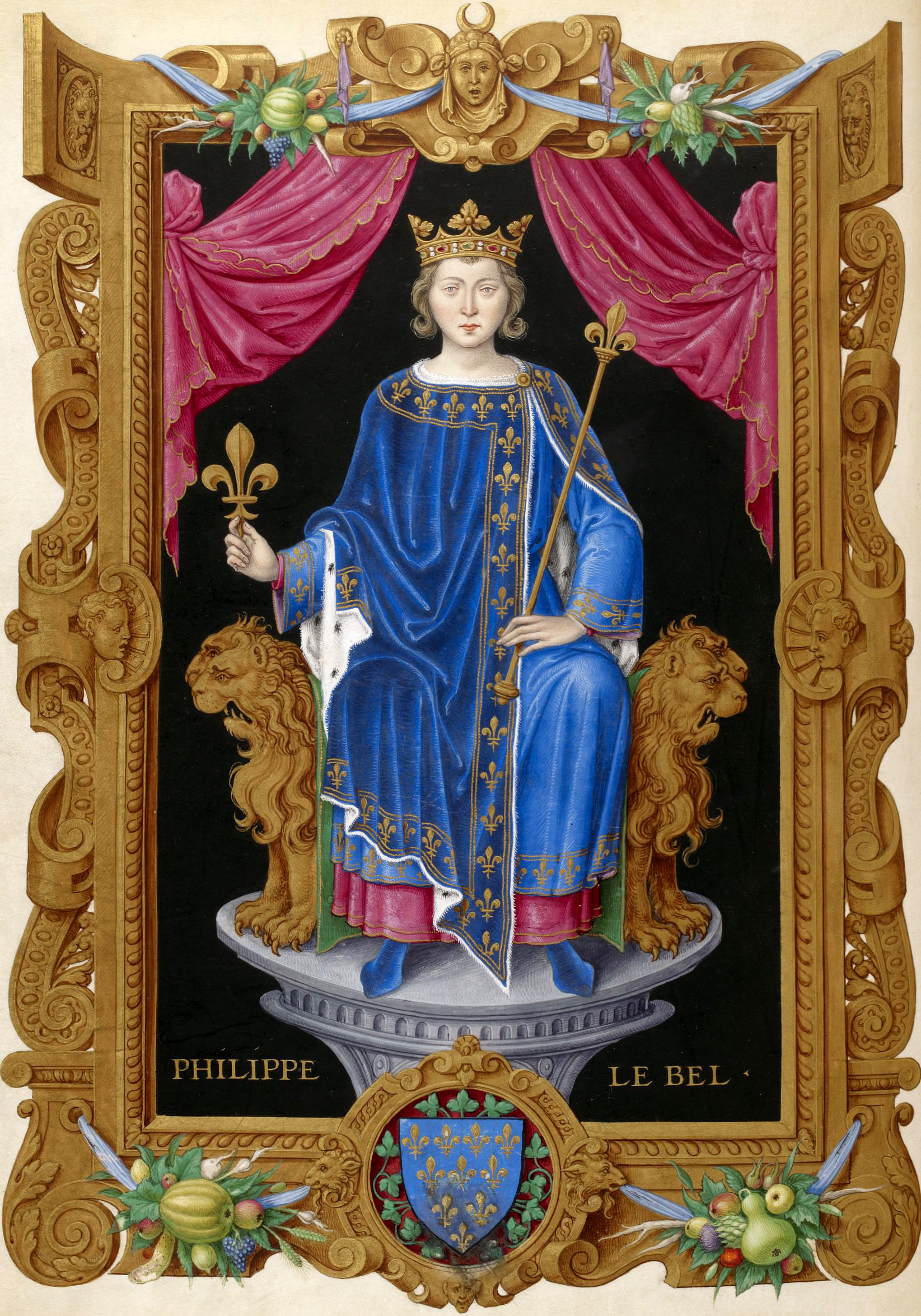
Philippe the Fair by Wikimedia Commons

Corronation of Charles VII at Reims by Wikimedia Commons
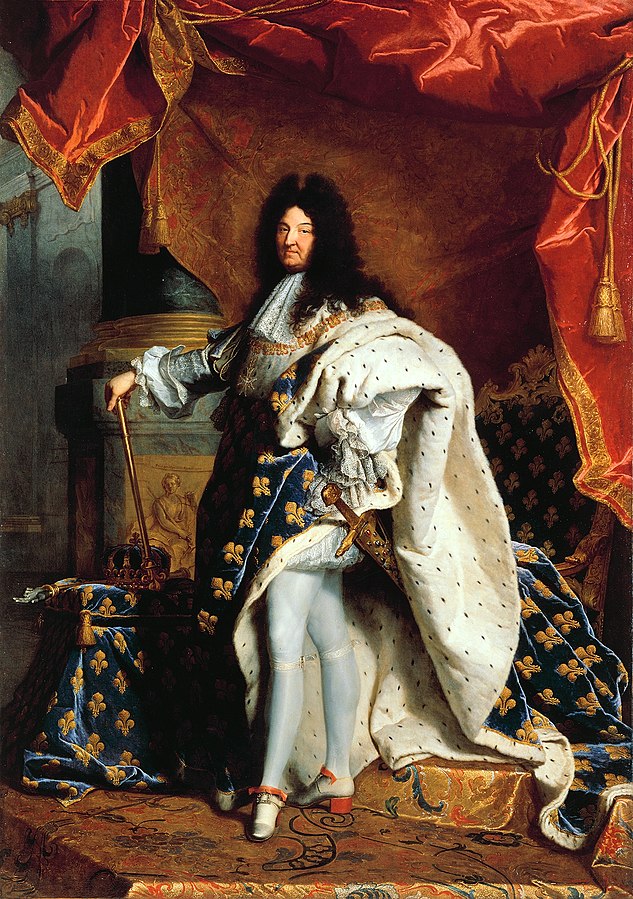
King Louis XIV by Wikimedia Commons

King Lucien by AmélieIS, Guérin and Artbreeder
The deselection
When the lords and ladies start to feel regret about their decision, there is always the possibility of choosing another king. Of course, there is only the minor inconvenience of kingship being for life. "Until death do us part" and all of that. Luckily, in recent years the French government has become expert at parting heads from their bodies…
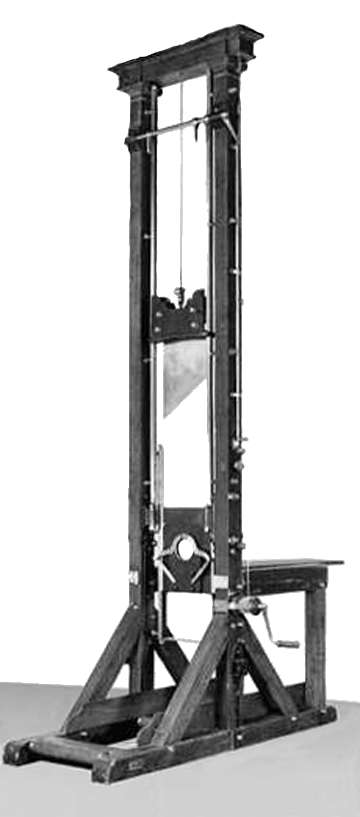
Guillotine by Wikimedia Commons


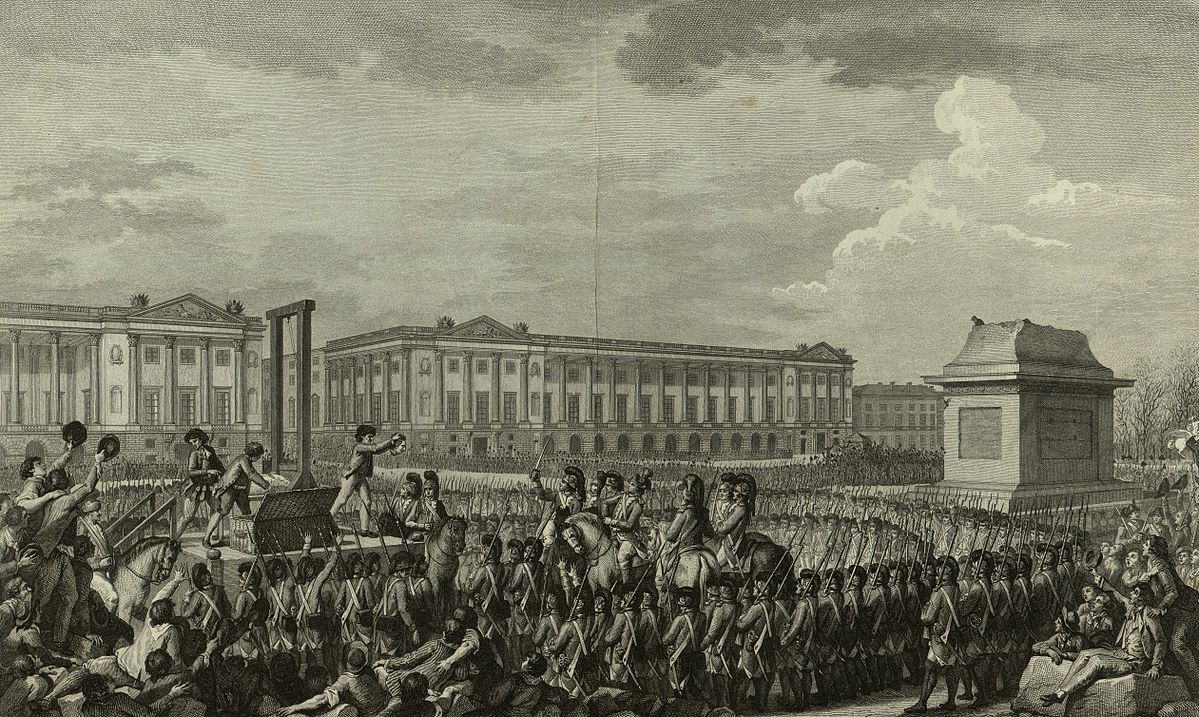



This is a well written article. Mixing ancient history, with history, to create the alternate timeline of your world. I'd rather not be deselected tho :D
Thanks :D But the deselection if the fun part! Kings need some pressure to behave :p